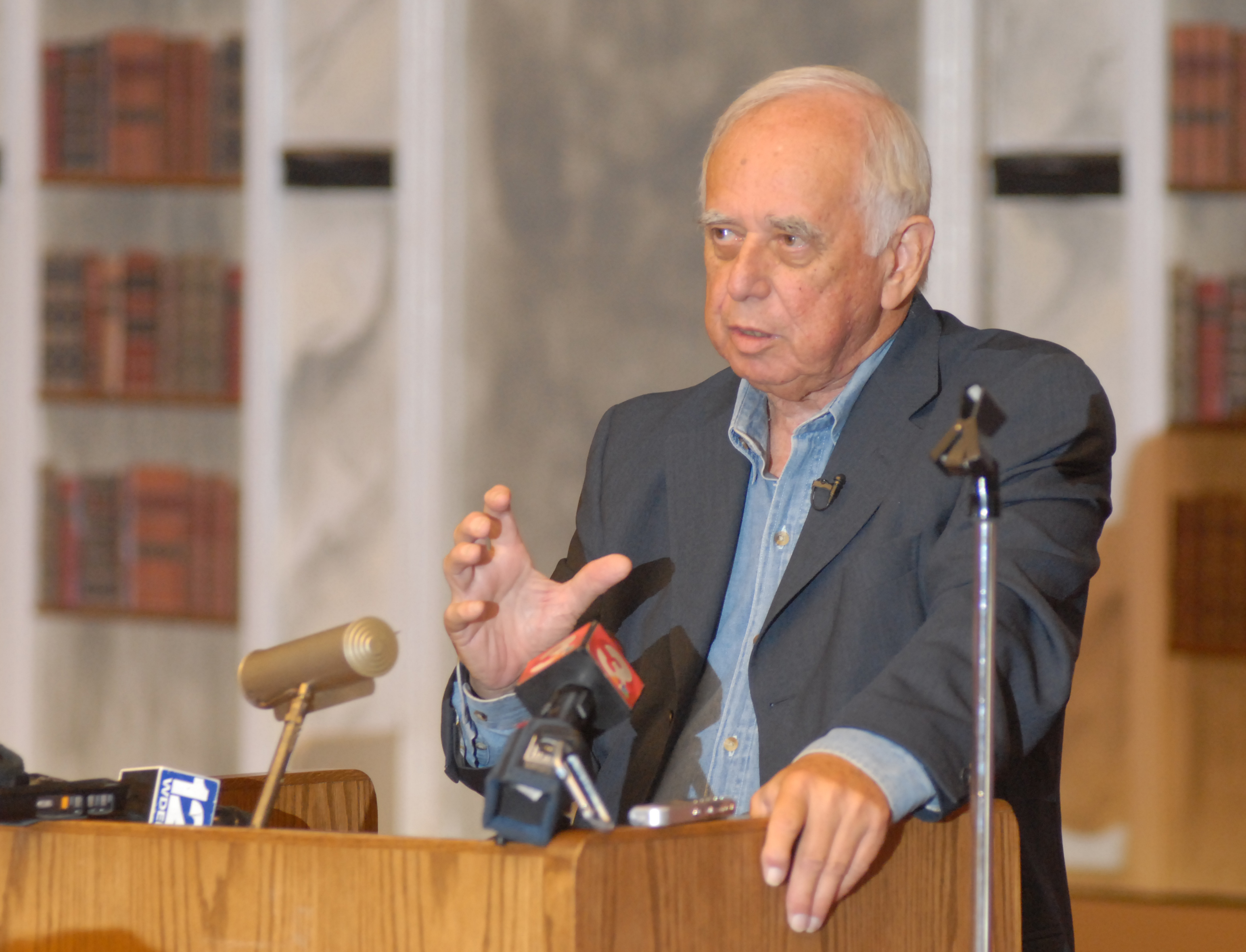Former TVA Chairman S. David Freeman calls for end to agency's nuclear building program
Friday, April 27, 2012
TVA, under fire for nuclear construction overruns, is on a road to having its first ever net loss year, its board was told Thursday.
"TVA expects to end fiscal year 2012 with revenues between $500 million and $600 million below plan," Chief Financial Officer John Thomas said, blaming unusually mild weather and a slowly recovering economy for sluggish power sales.
In addition, the board of the Tennessee Valley Authority and the utility's president and CEO were put on the defensive by public criticism of its $2 billion cost overrun on the Watts Bar Unit 2 reactor and its "nuclear addicted" management.
S. David Freeman, a former TVA board chairman, implored the agency "to just stop" its nuclear building program because it is too costly.
And at least two members of the public called for CEO Tom Kilgore to be replaced as the utility took criticism for Watts Bar, tree cutting, new recreation fees, energy policies and safety concerns.
But the board voted unanimously to continue with the completion of the second Watts Bar Nuclear Plant reactor, despite the delays and cost overruns.
Board Chairman Bill Sansom defended the nuclear construction, a much criticized right-of-way tree-cutting program, increased recreational fees and Tom Kilgore.
"The TVA board has been kept apprised of the review at Watts Bar Unit 2," Sansom said at the end of the three-hour meeting.
"Our concurrence today to complete the facility is not only one of support for nuclear energy as an important part of TVA's balanced energy mix ... it also is an endorsement of the leadership and actions by Tom Kilgore as president and CEO and his team."
Freeman, a native Chattanoogan who worked at TVA for many years and was appointed to the board by President Jimmy Carter in 1977, said he thought he "was having a bad dream" when he heard the news about Watts Bar cost overruns and delays.
"[A TVA manager] told me that plant was 92 percent completed back in 1979," said Freeman, "Nuclear power is not a religion, it's a business. ... It's time for this board to take a look at your load growth ... and really just recognize there is an influence here that is not businesslike."
TVA's plan
Kilgore maintains that TVA needs to grow its nuclear fleet to balance the utility's portfolio, but after the meeting he acknowledged that the utility's anticipated shortfall includes about $82 million to keep working on Watts Bar.
"But we're reducing other things," he said, referring to what he had told the board would be a "diet and exercise" program at TVA to streamline expenses and redirect spending.
Neither Kilgore nor Chief Financial Officer John Thomas specified just how spending would change beyond saying that $61 million in interest costs would be saved by postponing some capital and maintenance projects.
Kilgore said there is no mandated workforce reduction, but "employees are impacted when we idle coal plants ... and we are sending contractors home where we can."
He acknowledged that the Watts Bar cost overruns could affect TVA's future financing ability and bottom line, but he said it is not expected to significantly increase electric rates, as Moody's Investors Services suggested recently.
"Obviously Moody's is concerned with do we have enough credit to complete Watts Bar with this new increase, but we've proven with ... the way we've financed John Sevier that we have alternatives available to us if we need them," Kilgore said.
TVA has a $30 billion congressionally imposed debt limit, and in the past has talked of selling and leasing back John Sevier and eventually the completed Watts Bar reactor in order to finance Bellefonte Nuclear Plant's completion in years to come.
TVA has said Watts Bar's doubled cost and nearly doubled construction time was influenced by faulty planning -- even to the point of modeling the construction planning around Browns Ferry Nuclear Plant rather than the Watts Bar Unit 1 reactor. The Watts Bar reactors are twins and completely different designs and spaces than the Brown's Ferry reactors.
But Kilgore wouldn't point any "blame" fingers for TVA's troubles.
"You can look at this one of two ways," he said. "You can blame everybody and chase everybody off, or you can say let's fix this. And the people that learn need to take those lessons and finish the project."
Does he take any blame?
"Sure I do. It never feels good to miss. And the board has to choose, do they still have confidence in me or not. As long as they've got confidence, I'm going to put one foot in front of another and help Mike [Skaggs, TVA's nuclear construction chief] finish it," Kilgore said. "If they lose confidence, then I'll step aside."
Public criticism
Freeman along with Stephen Smith, executive director of the Southern Alliance for Clean Energy, also marshaled a news conference after the board meeting.
Freeman, who has run a number of utilities since he left TVA, said he blames the new part-time TVA board.
Its nine members "never asked any penetrating questions," Freeman said.
He said TVA is remiss by not requiring the reactor contractors to shoulder any financial risk if the plant construction doesn't meet a deadline or is under par.
Smith said he believes Kilgore should have more accountability.
Kilgore's watch, he said, has included "two of the largest financial missteps in the history of TVA."
He ticked off the $1 billion Kingston coal ash spill and the $2 billion overrun on Watts Bar.
"And they're set up to go forward with Bellefonte," Smith said. "Three billion dollars of mess-up is a lot to have happen on your watch."
Both Smith and Freeman said they also are concerned about TVA's dismissal of renewable power in the utility's push to achieve a "balanced" portfolio.
TVA already has achieved more than 33 percent nuclear power that Kilgore says is needed, Smith said.
